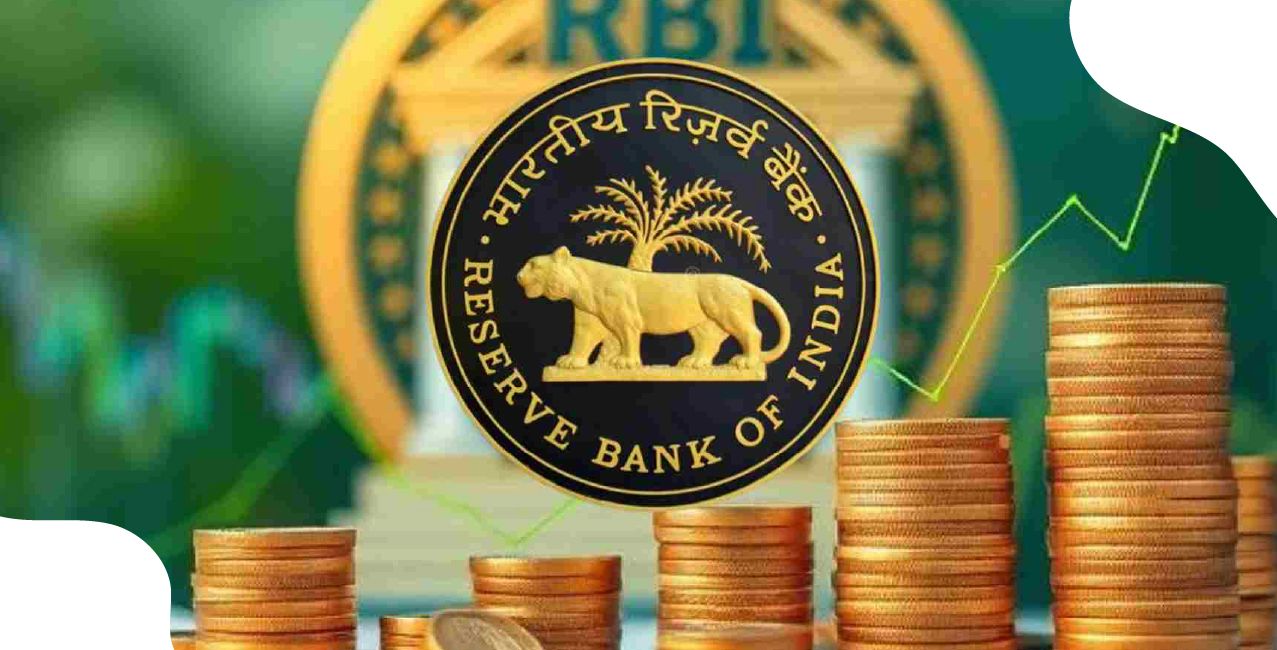
Author
LoansJagat Team
Read Time
4 Min
02 Sep 2025
India Back in Current Account Deficit in Q1, RBI Data Confirms
Numbers show a gap in trade even as remittances and reserves grow
Can a country earn more from services, get record remittances, and still face red ink in its books? India’s story in April to June 2025 answers this.
The Reserve Bank of India released its Balance of Payments report on 1 September 2025. It showed a return to deficit in the current account after a short surplus in early 2025.
Current Account Deficit Turns Back In 2025
India recorded a current account deficit of 2.4 billion dollars, equal to 0.2 percent of GDP, in the first quarter of FY2025-26. This was a sharp reversal from the previous quarter of FY2024-25. Then the country had reported a 13.5 billion dollar surplus, equal to 1.3 percent of GDP.
In April to June 2024, the deficit had stood at 8.6 billion dollars or 0.9 percent of GDP. The improvement in Q1 FY2025-26 compared with the same period a year earlier was visible. Yet the fall from the surplus in January to March 2025 made the numbers worrying.
India Trade Deficit First Quarter Shows Pressure
The goods trade gap was the largest drag on the external account. Imports stayed high while exports grew slowly.
India’s Trade Performance
The table shows the imbalance. Exports rose by over 5 billion dollars. Imports, however, rose by 10 billion dollars. The result was a trade deficit of 68.5 billion dollars in Q1 FY2025-26. A year before, the deficit was 63.8 billion dollars.
Oil, gold, and electronics stayed as the largest import items. Engineering goods and textiles supported exports but the gap remained wide. The India trade deficit first quarter again became the heaviest weight on the external account.
Services And Remittances Give Strong Support
Services and personal remittances continued to expand and gave the account much-needed support.
- Services surplus rose to 47.9 billion dollars in April to June 2025.
- In the same quarter of 2024, the number was 39.7 billion dollars.
- Remittances increased to 33.2 billion dollars in Q1 FY2025-26.
- A year earlier, remittances were 28.6 billion dollars.
This strength eased pressure from the trade side. Services in the software and professional business sectors held strong demand. Personal remittances from Indians working abroad also showed steady growth. Without these, the deficit would have been much larger.
RBI Balance Of Payments Data On Capital Flows
The RBI balance of payments data on 1 September 2025 also gave details of the financial account. Here, the picture stayed positive.
Capital Flows To India
The table shows that foreign direct investment (FDI) remained steady at 5.7 billion dollars. Portfolio investment (FPI) was weaker at 1.6 billion dollars. Borrowings through external commercial loans increased to 3.7 billion dollars. Non-resident Indian deposits contributed 3.6 billion dollars.
Together, these inflows helped cover the current account gap. The overall balance of payments surplus stood at 4.5 billion dollars in Q1 FY2025-26. This was lower than the 5.2 billion dollars a year earlier but still positive.
Foreign Exchange Reserves India RBI Show Growth
India’s foreign exchange reserves rose during the quarter. At the end of March 2025, reserves were 629.7 billion dollars. By July 2025, the stock had grown to 640.3 billion dollars.
Reserve Position
The table shows that reserves increased by 10.6 billion dollars during April to June 2025. This growth came despite the current account deficit. Capital inflows were strong enough to push reserves higher.
Reserves are often described as a shield for the rupee. They give the RBI space to handle shocks if global markets turn volatile.
India Economic Growth Slowdown 2024 Sets The Stage
The wider economic backdrop explains why the current account turned red again. India’s GDP growth slowed in FY2024-25 to 6.1 percent. The year before, in FY2023-24, it was 7.2 percent.
Global demand for Indian goods was weak. Domestic private spending also fell. Services exports kept growing but merchandise exports lagged behind imports. This slowdown in 2024 made the first quarter of FY2025-26 more fragile. Even with remittances and capital inflows, the current account deficit returned.
Risks For The Rest Of FY2025-26
The road ahead carries risks. Three key points stand out for policy makers and markets.
- Tariff actions: New tariffs from the United States may hit Indian goods exports.
- Rupee strain: If the current account deficit goes beyond one percent of GDP, the rupee could face more pressure.
- Portfolio flows: Foreign portfolio investments may turn volatile with global interest rates high.
Economists note that the Q1 FY2025-26 deficit is smaller than the Q1 FY2024-25 deficit of 8.6 billion dollars. Yet the goods trade gap remains wide.
Conclusion
India’s return to deficit in the first quarter of FY2025-26 is not an alarm but a warning. The Balance of Payments data of the RBI released on 1 September 2025 shows both strength and strain. Services exports, remittances, and capital inflows are strong. Reserves are rising.
But the heavy import bill, the merchandise trade gap, and the growth slowdown of 2024 are still concerns. The numbers show resilience but also risk. The external account in April to June 2025 reflects how India’s growth story depends on both trade and flows from abroad. The next quarters of FY2025-26 will decide if the current account returns to surplus or stays in deficit.
Other News Pages | ||
About the Author

LoansJagat Team
‘Simplify Finance for Everyone.’ This is the common goal of our team, as we try to explain any topic with relatable examples. From personal to business finance, managing EMIs to becoming debt-free, we do extensive research on each and every parameter, so you don’t have to. Scroll up and have a look at what 15+ years of experience in the BFSI sector looks like.

Quick Apply Loan
Subscribe Now
Related Blog Post

LoansJagat Team • 05 Jan 2026

LoansJagat Team • 05 Jan 2026

LoansJagat Team • 31 Dec 2025